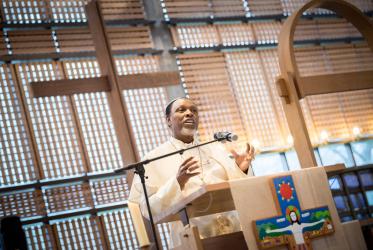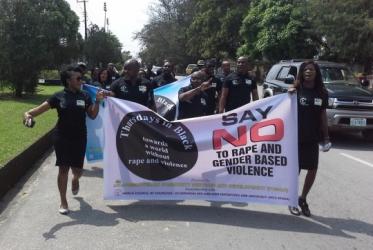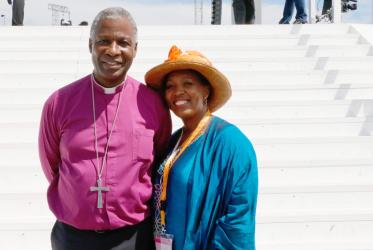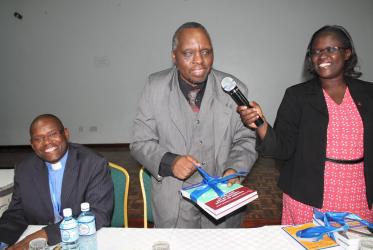Displaying 41 - 60 of 94
In Nigeria, Thursdays in Black is flourishing
26 March 2018
Walking together against hatred and violence
26 February 2018
#WCC70: Churches as “freedom agents”
12 February 2018
In Nigeria, WCC workshops focus on human rights
04 December 2017
WCC general secretary mourns lost lives, calls for end to violence
11 December 2016
New theological materials offer fresh perspective on disabilities
08 December 2016
Nigerian Christians and Muslims open historic peace centre
20 August 2016
Religion: Way of war or path to peace?
30 June 2016









